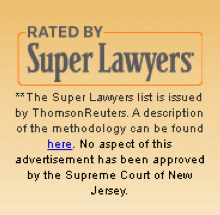What Is Legal Guardianship?
Legal Guardianship is an arrangement in which a Court appoints someone to act as the surrogate decision-maker for an incapacitated person.
Why is Guardianship needed?
“Incapacitated” means that a person is over 18 and is unable to make decisions that are important for their safety and welfare, and is unable to manage their own affairs due to medical or physical infirmity.
Guardianship may be needed when a young adult has serious developmental disabilities or traumatic brain injury and reaches the age of legal adulthood (18). Guardianship may also be needed when an elderly person with advanced dementia such as Alzheimer’s disease or vascular dementia or Parkinsons disease can no longer safely manage their medical and financial affairs, but never signed any power of attorney or health care proxy.
Guardianship may also be needed if the incapacitated person signed a limited type of power of attorney which is insufficient to take care of everything that is needed. For instance, a banking power of attorney is only useful for banking.
The Guardianship process requires court proceedings in the New Jersey county where the incapacitated person resides.
Types of Legal Guardianship
What is the Guardian’s job?
Along with authority to make decisions, a Guardian has many responsibilities to safeguard the well-being of the person under guardianship. The Guardian is legally responsible to manage the personal and/or financial matters under the Guardian’s authority. The Guardian has a duty to try to ascertain preferences of the person under guardianship, , and to arrange for whatever the incapacitated person reasonably needs in the way of shelter, goods, services, public benefits and financial management. The Guardian must take care of legal obligations such as filing of the person’s income taxes.
Is ongoing reporting needed?
Yes. All Guardians are accountable to the Court and must file annual detailed reports with the court.
What is Limited Guardianship?
If the court finds that the person is incapacitated for certain areas of decision-making but retains capacity for other areas, the Court can limit the scope of the guardianship. This is called Limited Guardianship.
How To Obtain Guardianship
How do you start the legal proceedings for guardianship?
The attorney for a concerned person (the “Petitioner”) including a hospital or nursing home who has a stake in the situation, files a Verified Complaint and Order to Show Cause for Guardianship with the New Jersey Superior Court in the county where the alleged incapacitated person resides. The Complaint must include Certifications from 2 physicians, or a physician and a psychologist, who have examined the person within the previous 30 days. If the individual is a young adult with an IEP, that can be submitted with one physician’s certification. The Court will set the matter down for hearing, and will also appoint another attorney to represent the alleged incapacitated person.
Who is the petitioner’s attorney?
This is the lawyer who represents the individual or facility that is asking the Court to appoint a Guardian.
Who is the court-appointed attorney?
This is the lawyer whom the Court appoints to represent the alleged incapacitated person, because legal rights of the alleged incapacitated person will be taken away if a guardian is appointed. This lawyer’s job is to advocate for the wishes of his/her client.
Who must be notified of the guardianship legal proceedings?
Formal Notice must be promptly given to other immediate family members (adults only) such as children, spouse, parents and siblings. If they wish to object, they must file an Answer in Court in advance of the date the Judge will hear the case, if they want the Court to consider their objections. An objecting party is called a Respondent. If they do not object, it may be difficult for them to go back to court later on to re-open the case.
What if there is already a Power of Attorney, Will or Trust?
If the person previously signed these kind of legal documents, the Petitioner must bring this to the Court’s attention right away, as it may affect the Court’s decision on how to proceed with the case in New Jersey.
Special Proceedings related to Guardianship
Although a Guardian, once appointed, has broad powers of decision-making and does not have to get specific court permission for every decision, there are limits. The Guardian must obtain specific court approval to sell or mortgage the real estate owned by the person under guardianship. The Guardian must obtain specific court approval to make gifts and give away the assets, whether for estate tax reduction or Medicaid eligibility planning.
The Guardian needs Court permission to establish a Special Needs Trust if the person under guardianship is under 65 and acquires or has assets that would disqualify him/her from Medicaid or Division of Developmental Disabilities(DDD) services. The Guardian also needs specific court permission to move the ward out of state.
Sometimes these matters are included in the initial Guardianship action. Other times, we go back to Court to take care of it when needed later on.
Inter-state situations: If a Legal Guardianship was put in place in another state and the person is moving to New Jersey, there will also be a need for special proceedings.
The attorneys at Fink Rosner Ershow-Levenberg Marinaro, LLC assist clients with guardianship matters, power of attorney, Special Needs Trusts, Medicaid and SSI benefits throughout New Jersey including the counties of Union, Essex, Morris, Middlesex, Passaic, Bergen, Somerset, Monmouth, Ocean, Mercer and Hunterdon County.

Handling Guardianship Legal Matters Throughout New Jersey
When acquiring guardianship for an adult child registered in the Division of Developmental Disabilities (DDD) system, there are many issues, such as Medicaid eligibility. Legal representation can be valuable in making sure your loved one is as independent as possible.
We can do your Medicaid Application.
Guardianship Related Legal News & Insights
Practice Areas
Guardianship Guidance
Guardians must file detailed annual reports with the court. We have collected the recommended forms to file for this Report. We have also added “PRINTABLE” versions of those forms which otherwise require Adobe Acrobat Reader software to view. You can download our ZIP archive of Annual Guardianship Report forms by clicking here. If you have questions about, or need help filing, the Annual Guardianship Report, please contact us online, or call us at 732-382-6070.

